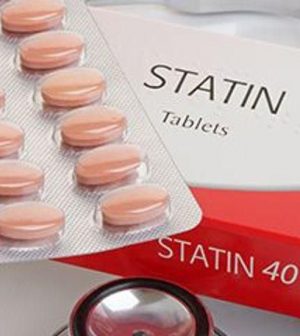- The Long-Term Effects of Daily Turmeric Supplements on Liver Health
- Could Your Grocery Store Meat Be Causing Recurring UTIs?
- Are You Making This Expensive Thermostat Error This Winter?
- Recognizing the Signs of Hypothyroidism
- 10 Strategies to Overcome Insomnia
- Could Artificial Sweeteners Be Aging the Brain Faster?
- Techniques for Soothing Your Nervous System
- Does the Water in Your House Smell Funny? Here’s Why
- Can a Daily Dose of Apple Cider Vinegar Actually Aid Weight Loss?
- 6 Health Beverages That Can Actually Spike Your Blood Sugar
1 in 5 Folks at High Heart Risk Refuse to Take a Statin

Twenty percent of folks who are at high risk for heart disease refuse statins that could help prevent it, researchers report.
They found that women were about 20% more likely than men to decline statin drugs when they were first recommended and about 50% more likely to never accept a statin recommendation.
The research began when Dr. Alex Turchin, of Brigham and Women’s Hospital in Boston, noticed that many of his patients with high cholesterol were deciding not to take these medications. Statins can reduce the risk of heart attack and stroke by lowering cholesterol.
Turchin began analyzing provider notes.
“Our study highlights the alarming number of patients who refuse statins and signals that physicians must have discussions with patients about why,” Turchin said in a hospital news release. “We need to better understand what our patients’ preferences are and to be able to provide more patient-centered care.”
The study included more than 24,000 patients seen at Mass General Brigham in Boston between Jan. 1, 2000, and Dec. 31, 2018. It focused on high-risk patients who had coronary artery or vascular disease, diabetes, very high cholesterol or had suffered a stroke.
“Even in this higher-risk patient population, so many people did not accept statin therapy,” Turchin said.
About two-thirds of the patients for whom statin therapy was recommended eventually tried it. The rest never did.
It took about three times as long for people who initially refused statins to reduce their LDL cholesterol levels to less than 100, compared to people who initially said yes to the medications.
Those who declined the statin therapy developed higher LDL — or bad — cholesterol levels. This likely further increased their risks.
Turchin said the biggest surprise was the high rate of refusal among women. Researchers wondered if a misconception that heart disease affects men more than women is a contributor.
“Ultimately, we need to talk to our patients and find out in more detail why they would prefer not to take statins,” Turchin said.
Heart disease kills someone in the United States every 34 seconds, according to the U.S. Centers for Disease Control and Prevention.
Turchin is now looking at how refusal of statin therapy affects outcomes such as heart attacks, strokes and death.
“I think people underestimate how much of a difference modern medicine has made in extending people’s lives, and their quality of life, and medications can play a big role in that,” he said.
Study findings were published Feb. 28 in JAMA Network Open.
More information
The U.S. National Library of Medicine has more on statins.
SOURCE: Brigham and Women’s Hospital, news release, Feb. 28, 2023
Source: HealthDay
Copyright © 2026 HealthDay. All rights reserved.










